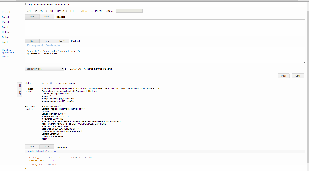Help us improve the Bimplus API doc by providing your valuable comments. You can find the comment section at the bottom of the page.
Standard Procedure
Developers please use https://api-stage.bimplus.net/v2 (stage version of Bimplus API) and
http://portal-stage.bimplus.net/ (stage version of Shop/Portal) for testing purposes. The production version of the portal is located under
https://portal.bimplus.net/ and the base url of the API is different for the production version.
Generally, the Bimplus REST API calls consist of five steps for accessing the resources.
1. Developer Registration
Generally our portal Allplan Bimplus is the first place of contact of the user for using the Bimplus platform.
Please do the developer registration here.
You can find step by step manualhere.
When you have any problems with the registration contact us here .
2. Authentication token request
The authentication request for accessing the BimPlus resource should be sent in the JSON format using the OIDC Authorization service. The registered user name and password in the Bimplus portal should be provided here.
For example, you can enable the OAuth 2.0 authentication process directly in your REST-client and it will automatically create and refresh tokens when needed.
It is recommended to use browser UI to login and logout with OIDC server. For this process, you can specify discovery URL and retrieve JSON with latest settings there.
| Environment | Discovery URL |
|---|---|
| Development | https://api-dev.bimplus.net/v2/.well-known/openid-configuration |
| Stage | https://api-stage.bimplus.net/v2/.well-known/openid-configuration |
| Production | https://api.bimplus.net/v2/.well-known/openid-configuration |
Received token should be directly used to access BimPlus resources after receiving it from OIDC. Refreshing and revoking of the tokens are also managed by OIDC, not BimPlus. Old authentication service in BimPlus remains only for backward compatibility and will be removed in 2026.
Please, use the client_id from the request and regenerate the token (using the same API call with client_id as the additional parameter) for having the possibility to login multiple times at the same time. For more information, seehere
3. Receive the authentication token
Obsolete. The token is received in the request.
4. Get the team information
The team has to be specified and setup through the Bimplus portal as so-called
slugs to present a
clean URL. Slugs are lowercase unique identifiers based on English characters and numbers. The team slug will be used to know which tenant database to work on.
5. Request the desired resource
Using the authentication token and the team slug, the necessary resource can be accessed and the desired action can be performed on that resource using the Bimplus REST API.
For example, we can use this token to get the project list.
Tools
Plugins for doing REST based calls (REST Client)
Chrome --> Advanced REST client, Postman - REST client, Simple REST client
Firefox --> RESTClient
For validating or formatting JSON --> http://jsonlint.com/

1 Comment
Jörg Velletti
Oct 25, 2018Step 2: I think it will be better to change the json example from
{"user_id":"test@bimplus.net","password":"test","application_id":"6C12345D9B0C4F3C23ABB5721D098F7B"}to
{"user_id":"YourEmail@example.com","password":"yourPassword","application_id":"6C12..The-ID-You-got-from-Support..F7B"}or some other hint that shows that the Application ID 6C12345D9B0C4F3C23ABB5721D098F7B is just an example